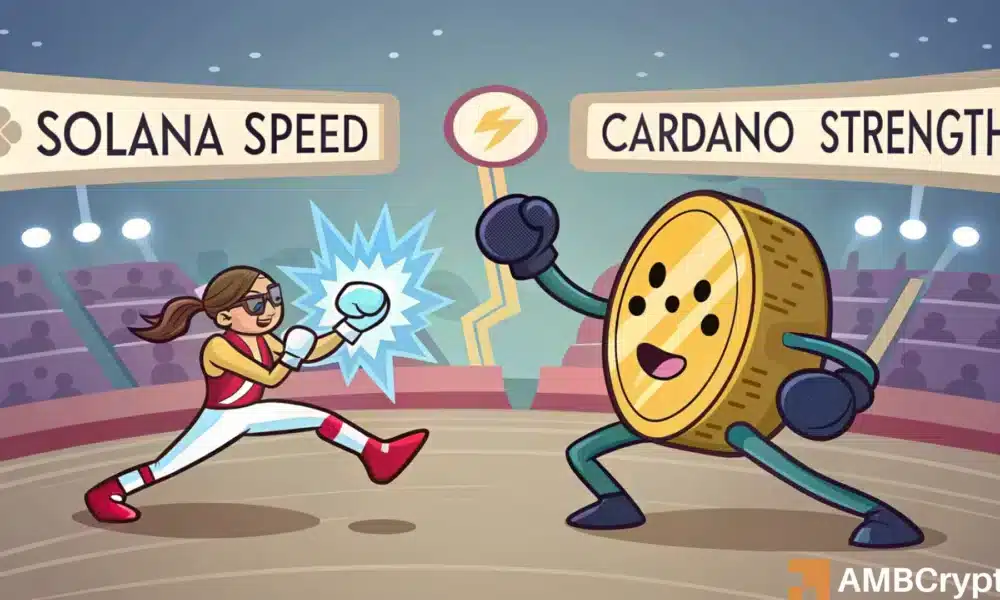Actor Ben McKenzie, who has a background in economics, is not a fan of cryptocurrencies, detailing his criticism in his new book “Easy Money.” “Crypto, by design, allows for a lot of illegal activity, particularly wash trading,” McKenzie claims. Mckenzie explains how a gap in regulation between the CFTC and the SEC has help the crypto industry grow, arguing the industry has exploited the division of how commodities and securities are classified and has “played the agencies off of one another.”
Video Transcript
ALEXANDRA CANAL: The crypto community is optimistic after the Securities and Exchange Commission announced it will review several applications for spot bitcoin ETFs. These funds would give investors indirect exposure to bitcoin. It’s unclear whether the applications are ultimately approved. Those in the crypto industry believe approvals would be a boon. But our next guest has been an outspoken critic of cryptocurrency.
Joining us now is actor Ben McKenzie. You may have also seen him in roles on TV shows like “The OC” and “Gotham.” And now, he’s the author of the new book, “Easy Money.” Ben, thanks so much for joining us here. You are a crypto bear, to put it lightly. you call crypto a scam. You say it operates much like a Ponzi scheme. But there are a lot of crypto bulls out there that say blockchain is here to stay. So why do you have such a critical take?
BEN MCKENZIE: Sure. Facts, mainly. Blockchain is over 30 years old. It’s not a new technology. A blockchain is a distributed ledger, way of storing information. So I have nothing against a ledger. So really, not mad at ledgers. It’s the way they’re used for, well, selling people unregulated and licensed investments, which I think really cryptocurrencies are, because I have a degree in economics. I know– well, most people really know that one of the things that money is supposed to do is it’s supposed to– you’re supposed to be able to buy and sell stuff with it. You can’t do that with crypto.
It’s real– and people aren’t using it as money, of course. They’re using it as a form of investment. So they’re putting real money into it, hoping to make real money off of it through no work of their own. We, obviously, have securities laws in this country for a reason. The federal securities laws were created in the 1930, because, in the 1920s, we did not have them. And the roaring ’20s was really, really fun until 1929 and the crash that led to the Great Depression.
And the powers that be realized, they really needed laws. Otherwise, people were going to lose their money. And our securities laws are predicated primarily on disclosure. Basically, when you’re investing your money, you need to know who you’re giving your money to and what the hell they’re doing with that money. Well, crypto, almost sort of by design, doesn’t have that. The pseudonymity of the blockchain obscures who owns what cryptocurrency or how much of it they own and who owns it. And so that allows for a lot of potential illegal activity, particularly washtrading, which is an enormous part of the cryptocurrency market.
So regulators really need to figure out, in my opinion, sort of, you know, what’s really going on here, how much of this is real, and how much of this has been artificially inflated. And then perhaps, we can figure out like, what the future for these, quote unquote, “currencies” is.
SEANA SMITH: Yeah, Ben. We’ve heard Congress lawmakers talk about regulation, the need for regulation within this space for quite some time. We had SEC Chair Gary Gensler, he was on with Yahoo Finance earlier this week, talking about the crackdown that he wants to see on crypto. I’m curious from your perspective, from a regulation standpoint, what do you think needs to be done? Obviously, there’s a lot of areas that need to be addressed. And you’re right to bring up some of the massive issues within the cryptosystem. But I guess, what are the biggest issues that you think should be tackled first?
BEN MCKENZIE: We have to enforce our securities laws rigorously. But as I point out in the book, I do a whole chapter on how did we get here from a regulatory perspective. And so for the finance dorks out there, econ dorks out there, public policy dorks out there, you know, this will be perhaps your favorite chapter.
But it’s really fascinating. We’re the only country in the world that separates our securities regulation from our commodities regulation in the way that we do. We have two agencies, the CFTC and the SEC, competing over jurisdiction. And there’s a gray area between how we classify securities and commodities.
And bitcoin became classified as a commodity, because futures were being traded of bitcoin. And under the CEA, the Commodity Exchange Act of 1936, because futures are being traded, you could classify Bitcoin as a commodity, because it had not been classified as a security. And yet the 20,000 other cryptocurrencies that currently exist today, sure look like securities to me and to the eyes of many regulators and many people who know more about this stuff than me. And yet they hadn’t really been classified in a way that I think the precedent hadn’t been set that would apply to all of them.
So we’re doing these sort of one-off cases. And we can talk about ripple if you want. But, you know, look, the application of the law is messy. And crypto has exploited this division in how we classify securities and commodities and sort of played the agencies off against one another, in my opinion. The crypto industry would really like the CFTC to regulate them. The CFTC is a smaller agency. It was about one quarter of the budget. I think it’s really important to kind of understand basic things about how we got here.
SEANA SMITH: And I’m curious, Ben, to also get your perspective here as a fellow celebrity. We saw other celebrities really promote a pump-and-dump crypto scheme. They were fined by the SEC. What kind of warning does that flash when it comes to how celebrities partner with certain– what they promote on their social media? And how does that impact what you do and with the partnerships that you strike?
BEN MCKENZIE: Well, I mean, the celebrities were– look, celebrities have always sold products ever since there have been celebrities. The difference is these are not– you know, this isn’t car insurance, this isn’t soap. These are financial products. And you’re supposed to be a licensed financial advisor, you’re not supposed to give financial advice unless you are one. But that’s effectively what these celebrities were doing.
And the reason that they shouldn’t have been doing it in that sense is that we really want– if you’re making an investment, you really want people that know what they’re talking about. But of course, celebrities are quite effective in speaking to the general public. And so– and they’re quite wealthy. And so it’s very easy for– or many of them are quite wealthy, certainly some of them much more than me. It’s very easy for us to make this cognitive jump between, oh, it’s a famous person who’s very wealthy, and they’re encouraging me, saying I should buy this or that crypto or bet on this exchange, gamble through this exchange. It’s very easy for us to go, oh, they must know what they’re talking about, because they’re so famous. But that doesn’t– it’s not necessarily true.
I don’t know these people personally. I mean, maybe, I guess probably I’ve met a few of them in passing. But this is not a personal situation. It’s just me saying this is how it works, this is what I’ve investigated over two years and stopped doing it. And you’ll notice, all of a sudden, the ads starring celebrities in cryptocurrency companies, they’ve pretty much disappeared from your television, not nearly as many this year as they were last year.
SEANA SMITH: And Ben, I want to switch gears to the double strike happening right now in Hollywood. You are actually part of all three guilds– the directors, the writers, and the actors unions. Why do you think the studios were able to sign a deal with the directors more easily than the writers and the actors? And are the ones here, are they similar across all three? What are the biggest differences?
BEN MCKENZIE: I think there are some substantive differences, you know. I mean, they’re different professions, right? Some similarities, and they need to work together. But directors have different issues than writers, different issues than actors. I’m here in my capacity as an author. But in terms of my union, my unions, I support them. I support my fellow writers. I support my fellow actors and performers. And we’re just looking to get a square deal.
It’s really unfortunate, really sad, that we’re here at this place, where it seems like we’re so far apart from these studios that have made so much money. But, you know, as soon as we strike a fair deal, trust me, I can’t wait to get back to work. I want to talk about cryptocurrency and more, which would be really nice.
Credit: Source link














































